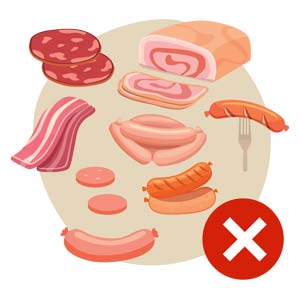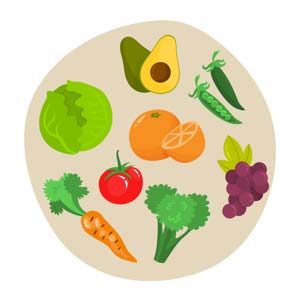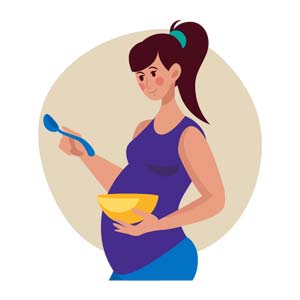Obstetrics Healthy Living
Healthy Eating During Pregnancy
What to eat and what to avoid so you and your baby can thrive.
 Watch Your Weight Gain While you may be "eating for two," your body only needs about 300 extra calories per day. If you were an average weight before pregnancy, you should gain between 25 to 35 pounds during pregnancy. Overweight women should gain less than 25 pounds. |
 Steer Clear of Risky Foods When you are pregnant, you are at greater risk of developing a foodborne illness called listeriosis, which can be life-threatening to your unborn child. To help prevent listeriosis, avoid eating hot dogs, lunch meats and cold cuts (unless you heat them until steaming hot just before serving), unpasteurized milk, refrigerated pate, meat spreads and smoked seafood, and raw or undercooked meat, eggs and seafood. |
 Avoid Alcohol There's plenty of research to show that drinking alcohol while pregnant can cause miscarriage, stillbirth and a range of lifelong physical, behavioral and intellectual disabilities, and even light or moderate drinking can affect the developing fetus. That's why doctors advise women to abstain from all types of alcohol during pregnancy. |
 Eat the Right Kinds of Fish Don’t avoid fish altogether because you are worried about mercury. The omega-3 fatty acids found in fish are important in your baby's brain development. The Food & Drug Administration (FDA) recommends that pregnant women eat 8 to 12 ounces per week of lower mercury fish (such as shrimp, pollock, cod, tilapia, and salmon). To avoid mercury found in some varieties, don't eat mackerel, swordfish, tilefish and shark, and limit your consumption of albacore tuna to no more than 6 ounces per week. |
 Make (Almost) Every Meal Count You don't need to completely eliminate sweet treats from your diet when you're pregnant. Still, you'll want your overall eating plan to emphasize nutrient-dense foods such as whole grains, protein, fruits and veggies, low-fat dairy and healthy fats (olive oil, nuts, avocados). |
 Eat Smaller, More Frequent Meals Instead of eating three big meals, plan on eating four to six smaller meals throughout the day. In the early months of pregnancy, this can help prevent nausea. Smaller meals can also help relieve the heartburn and discomfort many women feel as their pregnancy progresses. |
 Limit Caffeine While there is not a lot of research on the adverse effects of caffeine during pregnancy, it's best to err on the side of caution and avoid having too much. Limit caffeine to less than 200 milligrams a day, which is equal to about one 12-ounce cup of coffee. |
Sources:
Centers for Disease Control
American College of Obstetricians and Gynecologists
American Pregnancy Association
US National Library of Medicine/National Institute of Health
Healthline
